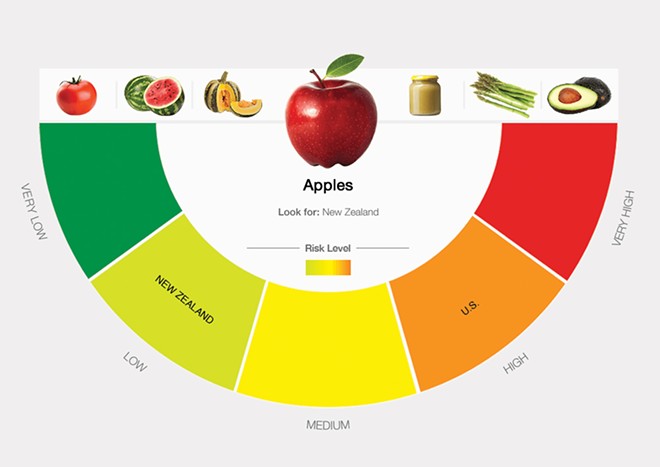Wednesday, May 11, 2016
InHealth: Buying organic, probiotics and time to hike
When to Buy Organic
If you’re torn between forking over extra cash for organic produce or making do with conventional, Consumer Reports has a new guide that may just help out. A team of scientists, including WSU’s Charles Benbrook, examined 12 years of data on 48 fresh, conventional fruits and vegetables from 14 countries. They then organized “produce-country combination into one of five risk categories.”
The result is an easy-to-use dial infographic that gives you a risk level from green (very low) to red (very high). Surprises? U.S. farmed green beans landed in the red category, while grapes from all over are considered low risk.
Pros and Cons of Probiotics
The probiotics industry generated $36.6 billion in 2015 and is only expected to grow. So, should you be taking a probiotic supplement? Researcher Lynne McFarland, an associate professor at the University of Washington Medical Center tells the NutritionAction.com, “If you don’t have any reason to think there’s something wrong with your digestive system, a probiotic probably isn’t going to do much for you.” Read more here.
A New York Times story similarly downplayed their effectiveness.
Take a Hike
What better way to learn about our beautiful and complex natural environment than getting out and traipsing around in it? Community hikes offered by the Dishman Hills Conservancy are a great way to meet up with kindred spirits and learn a thing or two while you get a bit of a workout. Be sure to check recommended fitness levels to make sure the hike is right for you.
• Sunday May 15 from 10 am to 2 pm Forest Ecology Hike with Art Zack
• Saturday June 4 at 9 am to 12 pm Butterfly walk with John Bauman
• Sunday June 19 at 9 am to 12 pm Big Rock Hike with Chris Kopczynski
Go here to register.





















